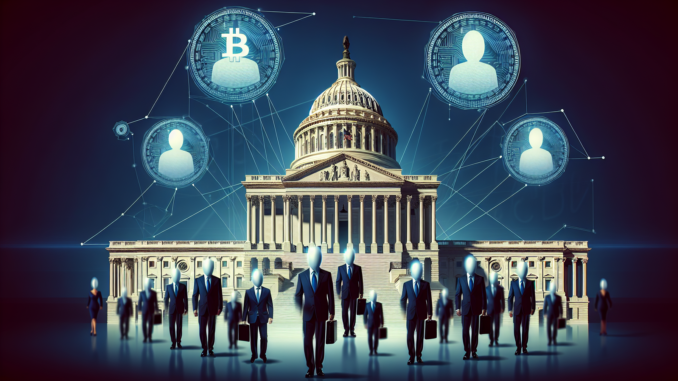
The world of cryptocurrencies faces a new challenge as the U.S. Internal Revenue Service (IRS) attempts to enforce stricter regulations for decentralized finance platforms (DeFi). In a united effort, the crypto industry has appealed to the U.S. Congress, urging them to block these new regulations. This move could have far-reaching consequences for the future of DeFi and the entire crypto scene.
Background: The Threat of New IRS Regulations
The IRS aims, with a planned regulatory change, to classify certain participants in the DeFi sector as “brokers,” which would require them to provide transaction data to the tax authority. This definition could have significant impacts on the DeFi industry, as many projects rely on anonymity and decentralization. The sector fears that this could stifle innovation and make market access more difficult for smaller players.
Major Players in the Crypto Industry Send an Urgent Letter to Congress
Leading figures in the crypto industry, including the DeFi Education Fund and the Blockchain Association, have come together to urge the U.S. Congress to oppose the IRS’s new regulation. They argue that this regulation would be unfair and would not do justice to the unique nature of DeFi platforms. The organizations emphasized in a joint letter that the rule changes would endanger user privacy and undermine decentralization.
The Impact of Legislation on DeFi Development
DeFi has emerged as an important part of the crypto ecosystem in recent years by redefining traditional financial services through decentralized technologies. By eliminating intermediaries, users can trade directly with each other, lowering costs and increasing efficiency. However, as tax authorities globally attempt to regulate these services, restrictive policies could hinder innovative business models and reduce investment in this sector.
Potential Impact on the Crypto Market
The enforcement of these regulations could have far-reaching consequences for the entire crypto market. On one hand, strict controls could lead to capital outflow from DeFi platforms, as investors fear potential legal uncertainties. On the other hand, clear regulations could serve as a gateway for institutional investors who have hesitated due to a lack of regulatory clarity. Finding the balance between necessary regulation and innovation will be crucial.
Conclusion: A Decisive Moment for DeFi
The debate over the IRS’s new DeFi regulations is a critical moment for the crypto industry. While the crypto sector continues to strive to protect its integrity and innovative power, it faces the challenge of coping with an evolving regulatory environment. The Congress’s final decision could set the course not only for the U.S. but for the global crypto landscape. Cryptocurrency enthusiasts and investors should closely monitor these developments to derive strategies for the future.
Ultimately, the crypto industry’s ability to comply with regulations while driving innovations will be decisive for the long-term viability of DeFi and the entire blockchain economy.
Leave a Reply